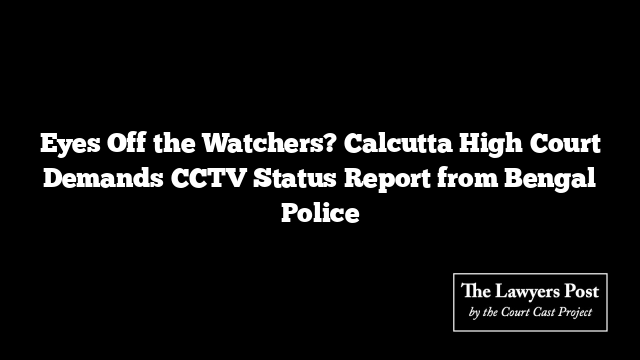In a sharp move aimed at restoring public trust, the Calcutta High Court has put the spotlight on a crucial question: Are the surveillance cameras inside Bengal’s police stations actually watching anything at all?
The question arises from a public interest litigation that laid bare a grim scenario—numerous police stations across West Bengal reportedly have defunct or poorly maintained CCTV systems, raising red flags about transparency and human rights safeguards.
Unimpressed by the silence from the State, a Division Bench led by Chief Justice TS Sivagnanam and Justice Chaitali Chatterjee has demanded answers. The Court has given the State eight weeks to file a detailed, affidavit-backed report that doesn’t just scratch the surface, but digs deep—preferably in a tabled format for clarity.
“The report must comprehensively respond to all the concerns raised in the petition. This isn’t just an administrative checkbox—it’s a serious matter with direct implications for constitutional rights,” the Bench underscored.
At the heart of the case is a PIL filed by Tathagata Datta, who raised the alarm not only about non-functional CCTV cameras but also about the State’s apparent indifference to the Supreme Court’s directives. Those directives had clearly mandated round-the-clock functional surveillance systems in police stations and jails as a safeguard against abuse and misconduct.
With the next hearing scheduled for July 3, the Court has made it clear: accountability isn’t optional. The State must now demonstrate whether its eyes on the ground are open—or merely painted on the wall.





